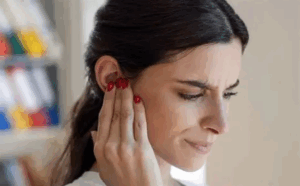Do You Hear That?!
Ringing, roaring, hissing, or rushing sounds in your ears? Your friends don’t hear them? Don’t panic. This is typically not an indication of a serious medical condition. Tinnitus is defined as the perception of sound when no external noise is present. It may seem like this sound is coming from the ears or from the center of the head. If you experience tinnitus, you are certainly not alone. 50 million people in the United States alone experience some form of tinnitus. About 16 million people in the U.S. are bothered enough by their tinnitus that they seek medical attention, and about two million people in that group are seriously debilitated by this condition.
Not only are you surrounded by a multitude of people struggling just as you are, you may recognize the names of these celebrities who have also suffered from tinnitus:
Vincent Van Gogh, Pete Townshend, Sylvester Stallone, Bono, Larry King, Ludwig van Beethoven, Dwight D. Eisenhower, Bob Dylan, Leonard Nimoy, William Shatner, Barbara Streisand and Steve Martin.
Steve Martin states that his tinnitus began while filming his movie “The Three Amigos” after an on-screen shootout. Excessive noise, like gunfire, can cause tinnitus and may also cause hearing loss. This can be a temporary phenomenon that disappears after a short time, but it can also be a long-term symptom of permanent noise damage to the auditory system. Many of the aforementioned celebrities cite exposure to loud music or explosions that most likely contributed to their bothersome tinnitus and possibly caused hearing loss as well. Prevention is the best medicine. Protect your ears from excessive noise such as gunfire, loud music, explosions or fireworks, train horns, alarms and any other sound that may be damaging.
It’s true, there is no cure for tinnitus, but that does not mean that there is “nothing you can do about it”. Though we cannot make the phantom sound in your ears or head completely disappear, our goal in tinnitus treatment is to retrain the brain to make the tinnitus sound less bothersome and less disruptive to your life. We aim to make the sound something you can live with… like your refrigerator running in the background or the light traffic near your home. This can be done with different types of tinnitus counseling, sound therapy, amplification, environmental maskers and specialized devices, and other elements that all work together to teach your brain to re-label the tinnitus as a benign stimulus.
So, while we cannot promise a cure, we can certainly provide hope for improvement and tools for progress. Be encouraged that you are not alone, you are in good company, and that help exists to improve your quality of life and reduce the disruption you have experienced as a result of your tinnitus.


